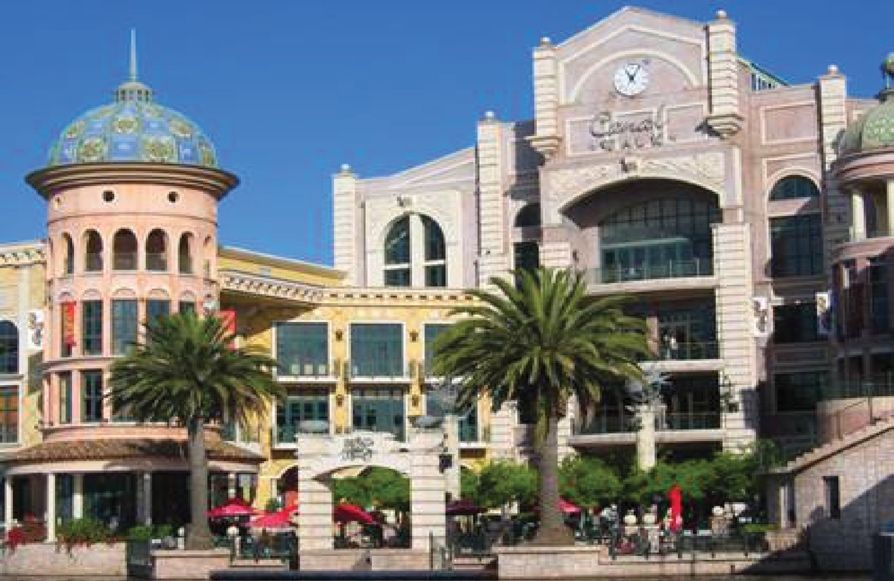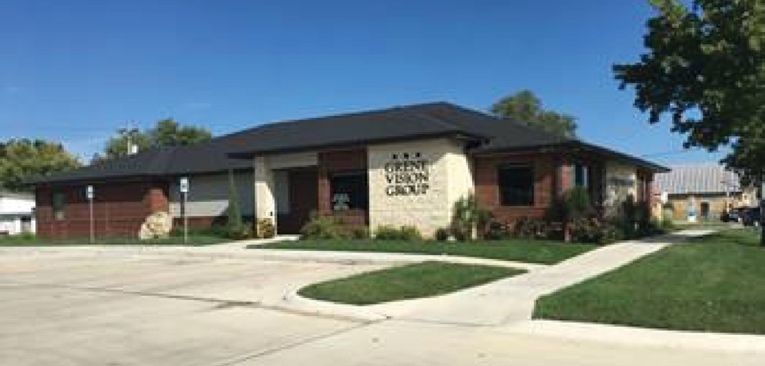The Future of the Optometry Mall Practice

Canal Walk Cape Town – Opened in 2000 – for the first 3 years it had over one hundred vacant shops. It took 4 years to build up decent patronage. As a matter of interest, there are over seventy sunglass vendors in Canal Walk.

Artificial Intelligence has made considerable in-roads in the business world. Just consider how it impacted the photographic industry, the printing industry, the music industry, and the travel industry in recent years. Today we have Uber which don't own cars and Air BnB which don't own property. The business landscape is changing fast. Online retail, just a few short years ago, was regarded with much skepticism here in South Africa. However, today most people around us are making use of online retail in some shape or form. Moreover, online shopping has been escalated by Covid19.
How will online shopping impact retail stores in Malls and for that matter optometric locations in Malls?
According to the Consumer Pulse research from GfK South Africa, South African consumers look set to accelerate their journey towards online shopping beyond the pandemic as they stay in to enjoy the investments they have made in their homes during the lockdown*. The survey revealed that consumers were preparing themselves for a prolonged period of cocooning.
The Mall Trap
A new Mall does not create new customers. All it does is displace an existing economy. The primary reason to set up in a Mall can only be that there is an expectation to generate customers quicker than at other start-up locations. The problem is, it has become common practice to abolish exclusivity and sign up four optometric practices in each Mall. So much for the motive of getting feet through the door if you have to share with three other competitors. The reality is that it will take the Mall three to five years to generate patronage that will even begin to justify the initial high rentals. The landlord demands high rentals, based on the assumption that the consumer traffic will be there from day one.
The day you sign a five-year lease in a Mall you are taken hostage by the landlord. Should your business fail, your commitment in terms of the lease agreement does not go away. If your business is successful, over time you will find that salaries and rent will escalate faster than what your turnover will increase. Most practices will initially show growth year on year, but at some point, within the first ten years will flatten out and then turnover growth will become very hard to find if not non-existent. However, salaries and rent will continue to escalate and dramatically erode the net profit. The ideal benchmark for optometric practices is to pay around 10% rent (of turnover) and achieve 20% net profit. Eventually, this won't be the case and will only get progressively worse.
The long trading hours demanded by Mall management are dreadful. Who wants to work the whole weekend and late into the evening during December? This translates to salaries higher than industry benchmarks.
Out-of-control rent
A standard clause in a lease agreement states that the tenant will have the option to renew the lease, and in small print, at a market-related rental. This means that at the beginning of a new lease period, the landlord can hike the base rent by a huge amount, claiming that is what he can get for the premises. The tenant has no option but to accept because relocating the business at short notice is not possible. You are in effect a hostage!
Rent over time
To put the cost of rent to your business into perspective, here is an example:
Premises - 150 square meters
Rent - R320 per square meter
Total monthly rent – R48 000
Rent escalation - 8% annually (mostly more than this)
Over a thirty-year career, you will pay over R65 000 000 in rent. Yes that is R65 million!
Click here on the calculator and insert your escalation and rent.
If this is what a landlord can make from 150 square meters, imagine what the income potential is of the whole Mall.
Will Malls reach a sell-by date?
We have seen from research by GfK South Africa, that online shopping will continue to grow. It can be safely assumed that it will also become more sophisticated and more convenient. The perception that online shopping is not reliable will melt away. Millennials, who are IT savvy, will move into higher income brackets with greater buying power, taking over from the older generation ahead of them, who is more likely to be resistant to online shopping. The younger generation behind them will be even more inclined to shop online. Malls will be under pressure to attract enough shoppers to justify the high rentals. As it is, Malls are pretty boring in that they all have the same offering. Online shopping offers international options, is cheaper and yes; it is convenient. My personal view is that the writing is on the wall.
What about the future of the Mall optometric practice?
Optometry has got some built-in protection against online shopping. Providing healthcare has an element of emotional labour. Making people feel good and managing their emotions is what emotional labour is about. Clinically, many procedures can't be done properly online. In my view, the service component of optometry is not going to be overrun by the internet anytime soon.
Own your premises
But here is the thing; if the Mall customers start to dry up, what reason remains to be located in a Mall? After all, the primary motive for signing a lease in a Mall was to be exposed to high consumer traffic. Given what we know so far, serious consideration should be given to relocating to stand-alone premises. In most American states, the norm for professionals is stand-alone premises. Locally, a lesson can be taken from Vets and Chiropractors who, as a rule, have stand-alone premises.
One would imagine that after ten years in a Mall, an optometrist’s patients would go find her because of the relationship and not because of the location. Relocating may be scary, but there is much comfort to be found in the fact that you have a patient record base, which allows communication. The ideal optometric practice setup is on the premises you own. Just think of the additional income, once the bond has been settled and you are rent-free! Will Malls reach their sell-by date? Given that some of the biggest companies in the world are online traders, one would be inclined to think so. Tencent, Amazon, Alibaba, JD.Com, and eBay are all massive global businesses. My prediction is that Malls will, at the very least, lose their status as the primary shopping locations in South Africa.
However, apart from the problems Malls are likely to face in the future, there are numerous obvious benefits for optometrists to buy a building and relocating from a Mall. Relocating from a Mall is a challenging exercise, which requires careful planning over time, but the rewards will make it well worth it.

Stand-alone optometry practice – the ideal
Can I afford it?
To put this in perspective; a home loan of R1 000 000, with a term of 20 years and R100 000 deposit (R900 000 bond) will cost you R7 250 per month. If your rent is R48 000 per month, then you could afford a bond of 6,6 x R900 000 = R5 958 620. This merely serves as an indication, in broad strokes, of what could be possible.
* Online shopping grows as South African consumers cocoon in the home. Published 27.07.2020
The GfK Consumer Pulse study is conducted weekly across 30 markets worldwide to track consumer perceptions, moods and behaviours in various industries.